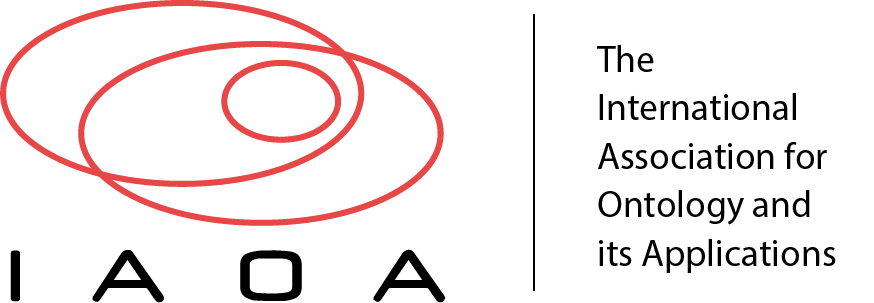JOWO 2022 – Report from Jönköping
On the morning of the 15th of August 2022, Jönköping University opened the doors to for the first time in Sweden host The Joint Ontology Workshops – Episode VIII: The Svear Summer of Ontology. In the five days that followed, scientists and practitioners interested in ontology gathered to share their latest research, discuss fundamental problems and network under the Swedish summer sun.
Taking place as a stand-alone event, JOWO’22 was chosen to be held predominantly on-site to, once again, try to reduce the distance between scientists and research disciplines after the covid-pandemic had made everything feel so far away. However, since “hybrid is the new black”, the event live-streamed the full scientific content to offer remote participants a chance to join the fun from the distance of their choosing. In the end, the combination resulted in just over 50 participants joining on-site and some 70 participants came and went on the virtual platform.
During the full event week (15-19th of August), JOWO’22 ran two parallel sessions to provide enough time for the contributing workshops and tutorials to run their individual programs. The scientific program consisted of seven workshops, three tutorials, three shared keynotes and one panel debate, all carefully puzzled into a schedule that, to the best of our ability, ensured that the participants could participate in as many of workshops/tutorials of their choosing.
The list of workshops consisted of a few JOWO classics like the sixth editions of “CAOS VI: Cognition And OntologieS IV” and ”FOUST VI: Foundational Ontology,” as well as ”IFOW III: The Integrated Food Ontology Workshop” and ”RobOntics III: Ontologies for Autonomous Robotics” which celebrated their third editions at JOWO’22. More impressive still, was to see that the impact of the ontology community is growing in different application areas as demonstrated in how several new ontology workshops were present in this year’s edition. Covering ever-relevant topics such as environmental concern, knowledge diversity and social services the newcomings were: “Ensusto: Energy, Materials and Sustainability Ontology Workshop,” “FMKD: First Workshop on Formal Models of Knowledge Diversity” and “OSS: Ontologies for Social Services.”
The participants were also offered the chance to further extend their ontology-focused skillset by participating in three tutorials of different scientific characters. First, He Tan held a semantic web tutorial on “Knowledge Graphs.” Then Tiago Prince Sales, Joao Paolo A. Almeida and Giancarlo Guizzardi organised a tutorial on how to “Implement Better Ontologies with gUFO.” Finally, the intersection between ontological modelling and linguistic research was investigated in the tutorial “Generating Text from Ontologies in Multiple Languages” organised by Maria Keet and Zola Mahlaza.
The scientific highlights of the event were, however, the presentations of the three shared keynotes. First up was Janna Hastings (University of Zurich/University of St. Gallen) who promoted ontology research in the setting of recent computer technologies in her talk “Ontologies in the age of deep learning.” This was followed by a talk by Peter Gärdenfors (University of Lund) who presented selected parts of his paradigm-shifting research on “Conceptual spaces, event structure and cognitive ontology.” The final keynote speaker, invited as part of the FMKD workshop, was Sebastian Rudolph (Technical University Dresden) who took the opportunity to build on Gärdenfors’ research and presented a more formal theory of knowledge representation in his talk “The Matrix Has You – Toward Compositional Conceptual Spaces.”
Another scientific highlight was the panel experiment “A Foustian Struggle” organised as part of the FOUST VI workshop. Here some of the founders of the seven (perhaps) most famous foundational ontologies were positioned against one another in a battle of how best to model particular scenarios. It was a fast-pasted intellectual battle that left both the audience and the participants wanting more.
Yet, scientific excellence is nothing without an opportunity to promote the conducted research and to ground it into meaningful connections. Thus, to take advantage of the on-site conference setting, JOWO’22 consisted of a rich social program that encouraged communication between both newcomers and returning members. During the conference’s cookie-overflowing coffee breaks (in Sweden it is considered rude to offer less than 7 types of cookies) the participants could get to know one another by, for instance, playing “Networking BINGO.” The conference extracurricular activities on the social program consisted of a conference reception with Swedish “skumpa och smörgåstårta,” a BBQ on the beach, a half day along Vättern that included not only a nature hike but a trip to the twelfth-century industry village Röttle and the Swedish candy-capital Gränna. However, the social highlight was without a doubt the conference dinner that set in between the medieval armours at the old country inn Gyllene Uttern provided the participants with the extraordinary panorama of the rainbow-coloured sunset as day turned into night over the second largest lake in Sweden.
The success of the event was the direct result of the hard work of everyone involved. As general chairs, we would like to say a warm thank you to the JOWO’22 organisation, all the workshop and tutorial chairs, the members of the program committees, the contributing authors and presenters, as well as to the audience. We hope that you all learned something new and that you had as much fun as we did!
The JOWO’22 chairs,
Maria M. Hedblom and He Tan
